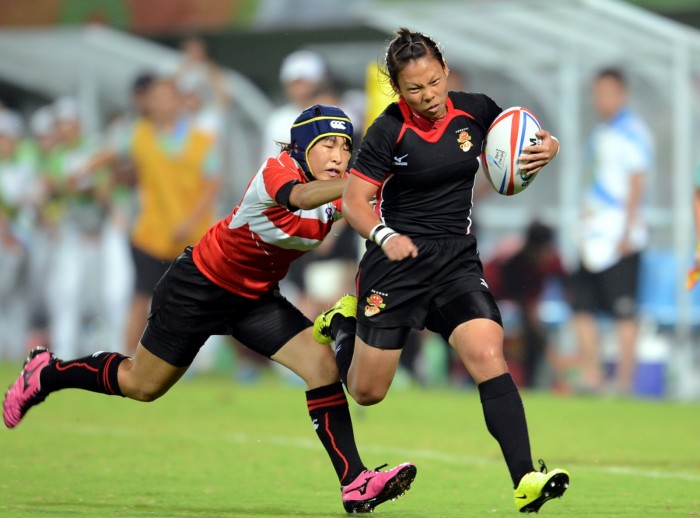Asia’s best target Paris
Asia's top four teams compete in Almaty in Kazakhstan this week to represent the continent at next year's Women's Rugby World Cup in Paris.
Published by John Birch, September 1st, 2013
4 minute read

This is, in effect, the second part of a qualification process that began last year. In June 2012 Singapore won Asia's second division title, beating Thailand 21-19 in the final in Manila - and with it a place in this year's qualification tournament. In doing so they replaced China, who finished last in the 2012 Four Nations, losing 27-3 to Hong Kong in the third place play-off.
Singapore will be joined in Almaty by Hong Kong, last year's beaten finalists - Japan - and 2012 champions and hosts Kazakhstan.
Last year's placings also dictate the seedings in this year's tournament. On Wednesday Singapore will play their semi-final against Kazakhstan, and Hong Kong will meet Japan. The winners will meet in the final - and qualification play-off - on Saturday, when the losers will also compete to retain their place in the Top Four.
Kazakhstanstart as overwhelming favouries. After their failure to qualify for the Sevens World Cup they will be determined not to miss out of the fifteens tournament - and, if history is any guide, they should achieve this target. Ranked 15 in the world they have never lost a test match against Asian opposition, and have never failed to reach the finals of the World Cup since the country gained independence at the end of 1991. As hosts they will be determined to maintain this record.
Before the rise of Kazakhstan,Japanwere Asia's dominant force, but they have not qualified for a World Cup since 2002. From then on the gap between the two nations grew, Kazakhstan increasing their advantage from a narrow 19-3 defeat in 2005 to a massive 43-5 demolition in 2009.
However, since 2009 the whole structure of Japanese women's rugby has changed, with the organisation of the national team coming under the main Japanese Rugby Union. Increased funding and improved coaching has achieved success at sevens, and last year saw the gap between them and Kazakhstan at fifteens closed to just nine points as they lost in the final by 17-8.
Ranked 21st in the world, their squad for Almaty includes many players from the sevens squad, including sevens captain Chiharu Nakamura, and Ayaka Suzuki - though fifteens specialist Misaki Suzuki will be the captain in this tournament. FormerJapanese men's team scrum half Mitsutake Hagimoto (54 years) has been appointed as coach.
However, before Japan can meet Kazakhstan they must first get pastHong Kong.They are ranked only one place below Japan, and have been Asia's most active women's test team since the 2009 World Cup. Hong Kong's ten tests since then have seen six wins, but crucially all four of those defeats have come in games against Japan, most recently a 41-17 defeat at the semi-final stage last season. Unfortunately, despite increased investment in the women's teams, Hong Kong are barely keeping up with Japan or Kazakhstan and it would be a major surprise to see them in the final, never mind to reach Paris.
ForSingaporethis will be a whole new experience. Ranked only 26th they have never played Kazakhstan before in a test match, but the fact that they have never beaten Japan or Hong Kong in twelve meetings suggests that the second division champions will be hard pressed to hold back their Kazakh hosts. Avoiding relegation will be their main target - and one that they will find it tough to achieve.